Administrative procedure reform: Still many difficulties
Although Quang Nam has had drastic and specific policies and actions, the administrative reform index (PAR INDEX), including the administrative procedure reform index (APRI), of the province has not improved much.
In 2023, the province's PAR INDEX reached 84.6 points, ranking 56/63 provinces and cities, in which the field of administrative procedure reform ranked 62/63.
People are not interested
On July 11, 2024, the Provincial People's Council issued a Resolution regulating the collection of non-uniform fees and charges in the implementation of online public services (DVCTT). Quang Nam is also one of the pioneering provinces in implementing public postal services. To date, 16/16 departments, 15 districts and cities have transferred 100% of administrative procedures to the post office for receiving and returning results.

The efforts in recent times have contributed to improving the rate of online public services in the province. According to the Provincial Public Administration Service Center, the rate of online processing and reception of records in the first 6 months of 2024 at the 3 levels of province, district, and commune were 92.4%, 61.5%, and 71%, respectively.
However, the rate of online public services has increased but there are also many concerns. Because, in reality, the increase in online applications does not come from the initiative of the people but mainly thanks to the support of civil servants, public postal workers, community technology teams... Basically, people are not interested in using online public services. The main reason lies in the complexity of submitting online applications, especially public services in some areas such as land, which require many procedures and documents.
As of August 12, 2024, the total number of administrative procedures providing online public services is 1,159 (60.5% rate), one-half of 16 (0.60% rate); the number of online public service provision points in the province is 7.7/12, 64% rate; the number of online payment points is 7.6/10, 76%.
Mr. Nguyen Ba Trong Hien, an employee of a construction consulting company in Tam Ky City, said that he has used DVCTT many times to do administrative procedures, especially procedures for reissuing construction practice certificates. However, it took him a long time to get used to the operations on the DVC Portal. "At first, the operations were quite difficult because the system had errors, some documents were submitted incorrectly, so the Department staff called to ask for redoing, which was quite time-consuming," said Mr. Hien.
An officer at the Provincial Public Administration Service Center admitted that even officials and civil servants are "lazy" when implementing public administrative services, not just the people.
In Hiep Duc, the rate of online applications in the first 8 months of the year reached 61.1%. However, the rate decreased sharply from July onwards, due to the regulation of using VNeID as the only account to carry out administrative procedures.
Mr. Nguyen Phuoc Nien - Chief of Office of Hiep Duc District People's Committee said that many people do not have electronic identification accounts; some people doing administrative procedures, especially in the field of land, are often old and do not have smartphones, so they cannot set up a VNeID account to submit documents...
For a long time, I have mainly worked for the people. Where the rate of public services is high, it is thanks to good and active support, while where there is a lack of human resources, qualifications... the rate is low. In fact, there are very few people who work at home to provide public services, especially in rural and mountainous areas...
Mr. Nguyen Phuoc Nien - Chief of Office of Hiep Duc District People's Committee
Why late?
Ms. Tran Thi Kim Hoa - Director of the Department of Home Affairs said that although the Provincial People's Committee has issued many remedial plans, the province's public administration assessment indexes have continuously decreased over the years; some component criteria have low scores and no improvement.
Administrative procedure reform is still a weakness in the province's administrative reform work due to the slow announcement and disclosure of administrative procedures and the high rate of overdue records. At the provincial level, in August 2024, the total number of overdue records that have been resolved and are being resolved was 64 records; at the district level, 773 records; and at the commune level, 397 records. Most of the overdue records are in the land sector.

Analyzing this situation, Mr. Bui Ngoc Anh - Director of the Department of Natural Resources and Environment said that in the first 9 months of 2024, the rate of overdue administrative procedures of the Department of Natural Resources and Environment was about 6.3%. The reason for the delay is not in the set of procedures or the administrative reform process, but there are many reasons, the most complicated of which is determining the origin of the land.
Currently, many commune-level localities only have one cadastral officer while the dossiers need to determine the origin of large amounts of land. Not to mention, they also do many jobs, from basic construction to land management, granting certificates, and compensation for site clearance.
Bui Ngoc Anh - Director of Department of Natural Resources and Environment
According to Mr. Anh, there are still many problematic "links" in the settlement of administrative procedures related to land. First, it is necessary to re-evaluate the reception through the public postal service. Accordingly, the reception procedure only determines the number of documents, but it is not known whether they are complete or correct. Therefore, many documents that are not guaranteed must be returned, causing a waste of time.
Chairman of the Provincial People's Committee Le Van Dung said that the administrative reform index dropped due to many reasons, including cumbersome and congested administrative procedures; the way of handling administrative procedures at the one-stop shop is still roundabout and time-consuming.
Giving an example of the Provincial Association of the Elderly doing procedures to establish the Association, Mr. Dung said: "When they send the documents to one door, one door brings them to the Department of Home Affairs for appraisal, because they lack this or that, they return one door, one door returns them to the Association to redo... I think this way of doing things is roundabout and too troublesome."
According to Chairman of the Provincial People's Committee Le Van Dung, "one-stop" officials, especially at the commune level, and specialized departments at all levels, are still "tricky" in guiding people through administrative procedures, forcing people to go back and forth many times. Not to mention, some places still cause harassment and inconvenience.
Action needed from both sides
Recently, the Provincial People's Council held a meeting to explain the province's administrative reform work. Here, many problems were "dissected", analyzed and solutions were pointed out.
According to the leader of the Department of Home Affairs, since 2023, the province has completed the merger of the Public Service Portal and the Provincial Electronic One-Stop Information System into the Administrative Procedure Processing Information System. However, problems related to interconnection, connection, data sharing, and data synchronization between systems have not been promptly resolved.

Mr. Pham Hong Quang - Director of the Department of Information and Communications said that to use public services, there must be two sides, including the service provider (4-level state administrative agencies) and the user, that is, the people and businesses.
To promote public services, infrastructure must come from both government agencies and people and businesses. In mountainous areas, public services have not caught up because the infrastructure and facilities of the people are not guaranteed. In the coming time, we will advise on dividing each type of area to use different public services.
Mr. Pham Hong Quang - Director of Department of Information and Communications
Mr. Nguyen Cong Thanh - Vice Chairman of the Provincial People's Council said that with public services, only state investment in infrastructure is not enough, but also people's awareness, knowledge, telecommunications infrastructure...
The representative of the Provincial Public Administration Service Center said that it is impossible to support and replace public administrative services for the people forever. The spirit is to make public administrative services as easy to use as a popular application. To do so, in addition to propaganda, it is necessary to simplify the process, reduce procedures, and connect and synchronize data...
Chairman of the Provincial People's Committee Le Van Dung said that in the coming time, the Provincial People's Committee will not issue additional unnecessary procedures and cut down some cumbersome procedures. At the same time, he directed the sectors to issue specific procedures for handling administrative procedures, clearly identifying people, clearly identifying tasks, clearly identifying time to conduct supervision and handling in the fields of investment, granting mineral exploitation licenses, measuring and adjusting land...
Solving difficulties from local resources
Using the results as a basis for evaluating and classifying the level of task completion of the leader, partly contributing to increasing the rate of administrative procedure settlement records for citizens and businesses.
In the period of 2021-2025, up to now, departments and branches have advised the Provincial People's Committee to issue 17 decisions approving the List of standardized administrative procedures (AP) under their authority and management scope. As of August 2024, the total number of APs being implemented in the province is 1,870 (1,485 at the provincial level, 351 at the district level, and 161 at the commune level).

Low online profile
There is no digital signature device to perform online public service records (DVCTT). From now on, people often choose to submit directly and in paper form to... feel more secure. In particular, from July 2024 onwards, citizens will not be able to use regular accounts on the systems to submit procedures but must do so with an electronic identification account VNeID. This has led to many obstacles for people in difficult circumstances or the elderly, people in mountainous areas who have not been equipped with smart devices.
Along with that, people are still not proficient in submitting administrative procedures online, causing the number of online applications to be low at district and commune levels.
The number of certified electronic copies from local originals deployed on the National Public Service Portal has not been synchronized with the Provincial Administrative Procedures Information System. Certified records account for the majority at the Commune People's Committee, but this procedure does not meet the conditions for deploying online public services, so the rate of online records generated at the Commune People's Committee is still low.
Currently, the information system for handling administrative procedures still has many shortcomings and difficulties in connection, data sharing, and data synchronization. Internal administrative procedures are diverse in terms of issuing authority and coordination methods, so there is still overlap in the authority to review and issue lists.
Prioritize data cleaning
In mountainous areas, investment in information technology infrastructure has not been synchronized, leading to difficulties in connecting, communicating, sharing, and effectively exploiting database resources. The high proportion of ethnic minorities and low educational level make it difficult to implement the electronic one-stop mechanism, especially for public services.
The staff and civil servants in charge of handling administrative procedures in communes are unstable, frequently rotated, change jobs and have not received professional training, which significantly affects the quality of operations of the "one-stop, one-stop" mechanism...

Not to mention, the mobile network is only available in the center of communes and villages in remote areas without mobile networks, the number of people in mountainous areas with smartphones is low, so the rate of people submitting documents is still limited. Some components of the documents in administrative procedures have large capacity, making it difficult to upload, especially for low-configuration smartphones...
A representative of the Institute for Policy Research and Media Development said that the level of meeting user needs on local public service portals is still very limited. Specifically, there is no uniformity and consistency nationwide. The process and results of handling administrative procedures are not fully publicized, difficult to search and trace.
Many types of new records have stopped at the stage of converting from paper to electronic form, but have not reached the level of digitizing processes and utilizing digital data to simplify processes and procedures. The digitization and cleaning of data in some localities is still slow, without a clear roadmap or plan.
Some agencies and units even mainly carry out digitization at the level of copying from paper to electronic copies, which does not ensure legal value, leading to the situation where people submit electronic documents and then return and bring paper documents to submit. This wastes digitization resources and costs storage resources.
Mr. Ho Quang Buu - Vice Chairman of the Provincial People's Committee said that in order to gradually improve the quality of public services, in response to difficulties in IT infrastructure and telecommunications infrastructure, the province has allocated resources for investment by units and localities. At the same time, it has directed specialized agencies to work with businesses to expand mobile coverage as well as support citizens in converting 2G phones to smartphones. In addition, the review and restructuring of processes continues to be promoted to provide public services in part and in the entire process in accordance with current regulations, fully synchronizing 100% of records and status of administrative procedures from the Provincial Administrative Procedures Information System to the National Public Service Portal.
Access to many amenities
Quang Nam Police is currently the unit that maintains a good rate of receiving online records on the public service portal, with 11 essential public services hosted by this sector. Many procedures have a 100% online record reception rate such as: permanent and temporary residence registration; residence notification; seal making procedures; ordinary passport issuance; motorbike license plate registration; fines...
Register your car at home
First-time vehicle registration using the full online public service (DVCTT) for domestically manufactured and assembled vehicles is one of the utilities being deployed simultaneously by the Traffic Police force (CSGT) in the province since August 1, based on Circular 28/2024 of the Ministry of Public Security.

Accordingly, vehicle owners do not have to bring their vehicles to the vehicle registration office, but will use the public postal service to receive vehicle registration certificates and license plates.
The license plate stamping is done by the vehicle owner on the public service portal or on the national identification application. The public service portal and the national identification application notify the issued license plate and guide the payment of vehicle registration fees via text message, email address or notification on the national identification application so that the vehicle owner can pay via the payment utility integrated on the public service portal and the national identification application.
The entire vehicle registration process has been enhanced by the Traffic Police force in terms of information and propaganda through many channels, especially on social networking platforms.
“According to statistics, the whole province currently has more than 15 cases of full-time vehicle registration. The common difficulty now is that vehicle owners have level 2 electronic identification accounts but have not used them for a long time, have not updated the application, or have forgotten their passwords, so they have problems logging in. Other cases have not registered for level 2 identification, so they cannot use it. Along with that, on the public service system, the synchronization of tax data and customs registration is not timely. This is a technical factor, the traffic police must guide and explain to the people,” shared Lieutenant Colonel Phan Thanh Hong, Head of the Traffic Police Department of the Provincial Police.
According to Mr. Hong, the general mentality of people is to want to do it quickly and fear problems when declaring online, so they often choose to do it directly, thus affecting the rate of using public services in this field.
Towards the people
Switching from manual methods to using public services is a strong reform of the administrative system serving and oriented towards the people. However, changing the mentality and creating widespread awareness among the people still requires more efforts in propaganda work. Delays in handling procedures through public services still exist, and declaring information on some services is still complicated, making many people not interested.
Colonel Ho Song An - Deputy Director of the Provincial Police Department said that Quang Nam Police, as the permanent member of the Project 06 provincial working group, has been promoting the implementation of Project 06 models. However, there are still many "bottlenecks". The Provincial Police Department leader said that at many times, the Ministry of Public Security's public service portal and the National Public Service Portal encountered technical problems related to logging into VneID, so they could not exploit population data to serve the generation of online records, affecting the rate of generating public services.

The implementation of pilot models serving socio-economic development still faces many difficulties and problems such as: no specific solutions from the Government's Project 06 Working Group; no specific instructions on technical criteria, process for selecting solution providers as well as funding allocation mechanism for implementation, leading to difficulties and confusion for units in selecting solutions as well as proposing funding for implementation.
A part of the people in disadvantaged areas, especially mountainous areas, do not have a VneID electronic identification account because they do not have a main SIM card, do not use smart devices, and have limited knowledge of information technology, leading to the inability to generate public service records. The provincial police have been focusing on promoting the installation, activation, and use of VneID for people in the province.
“The Provincial Police have advised the Provincial People's Committee to direct members of the Project 06 working group, heads of departments, branches and localities to clearly define tasks, focus on reviewing and clarifying existing issues, limitations, and bottlenecks under their authority, and promptly report to find solutions and avoid generalities and formalities. In the coming time, the Provincial Police will take the lead in coordinating with the Provincial People's Committee Office to advise the Chairman of the Provincial People's Committee to organize the issuance of plans, inspect and supervise the implementation of Project 06 in local units, aiming to strengthen the construction and exploitation of utilities from Project 06 to serve citizens" - Colonel Ho Song An informed.
Step by step to facilitate people
For the first time, a Public Service Kiosk was piloted to receive administrative procedures for citizens and businesses. Likewise, the pilot model of “5 administrative procedures without waiting” initially brought satisfaction to help people adapt to online public services.
Public service kiosk
Instead of having to wait in line for a long time to do administrative procedures like before, Ms. Le Thi Anh Tuyet (Ly Truong village, Binh Phu commune, Thang Binh district) only needs a few simple steps on the Public Service Kiosk (DVC). After selecting the documents and procedures to submit displayed on the Kiosk screen, Ms. Tuyet accesses by scanning the QR code of the VNeID application on her phone to log in.

At this time, the Kiosk screen displays a request for her to enter complete information, check and confirm all the components of the application. The types of documents attached to the application that need to be submitted just need to be inserted into the scan slot, the machine will automatically create a copy and return the original documents on the spot. After completing the steps, the Kiosk asks to recheck the entered information and enter the confirmation code. When confirming the information, the system displays that the application was successfully submitted and the machine automatically prints the application receipt, after which Ms. Tuyet receives the appointment paper and leaves to wait for the day to return the results.
The DVC kiosk that receives administrative procedures is very compact, at first glance it looks very similar to an ATM. The device is made up of a touch screen computer system, integrated printer + scanner, QR code scanner and is connected to the DVC Portal via wifi network.
The convenience of the Kiosk is that all content is displayed in Vietnamese, large and clear, the operation is simple, the process is quick, suitable for most people, especially for older citizens. After the citizen submits the procedure, the file will be transferred to the Public Service Portal for the staff to receive, process and return the results on time.
The DVC kiosk is located at the one-stop shop of Binh Phu commune. In addition to the smart sensor system, exploiting data from VNeID, through the automation technology supported at the kiosk, people do not need to directly contact the staff receiving and returning results.
Mr. Tran Thanh Hai - Chairman of Binh Phu Commune People's Committee shared that this Kiosk system is also a measure for people to approach and evaluate civil servants. "Previously, without the Kiosk, many people came directly, and it took a long time to process a file, leading to overload and inconvenience for people waiting. Now through the Kiosk, people can submit their own files and receive appointment slips, which is very convenient...".
Mr. Pham Ngoc Hiep - Deputy Director of VNPT Quang Nam said that implementing the Project 06 model, VNPT coordinated with the government to deploy automation solutions for public administration centers and one-stop departments through DVC Kiosks. This model is tasked with exploiting data from the VNeID application, thereby gradually effectively implementing the goals of Project 06, serving the administrative reform and digital transformation of the province in the coming time...
Administrative procedures without waiting
In Que Chau commune (Que Son district), the model of 5 administrative procedures was selected for implementation, including: issuing a certificate of marital status; marriage registration; re-registering a death certificate; registering a death certificate; issuing a copy of a household registration extract.
Mr. Nguyen Van Nghia (Phuoc Duc village, Que Chau commune) currently working in Da Nang city said that recently, he returned to his hometown to complete the procedures for the Certificate of marital status. Compared to before, Mr. Nghia had to wait for a long time, but now his application was processed within 15 minutes.

Mr. Nghia said that after being instructed, he logged into VNeID, registered an account on the DVC system, selected the transaction procedure and entered the relevant information. After submitting the information, the commune's Justice - Civil Status officer will receive and process the application.
“I find this model very convenient. Previously, it took about 2-3 days, but now it only takes 15 minutes for me to get a marriage status certificate, and it also saves more travel time than before,” Mr. Nghia added.
Mr. Nguyen Van Quang - Justice - Civil status officer of Que Chau commune said that the model of "5 administrative procedures without waiting" originated from local reality. In particular, the field of justice - civil status was chosen to implement in the model because these are the fields that people frequently transact.
“From August 15, if people want to use this model, the first condition is to use a level 2 VNeID account. The highlight of this model is that all operations in the application processing process are done online, thereby reducing travel time for people and saving costs for state agencies,” Mr. Quang informed.
According to Mr. Nguyen Minh Sy - Chairman of Que Chau Commune People's Committee, the model of "5 administrative procedures without waiting" was launched at the end of June 2024. To implement the model, Justice - Civil Status officials and staff at the Commune Reception and Results Department have been trained in professional skills, ensuring a firm grasp of the procedures and related legal regulations.
“This model not only improves the quality of service of commune officials, but also achieves the goal of increasing people's satisfaction with public services. In the coming time, Que Chau Commune People's Committee will consider expanding the scope of application to other administrative procedures, gradually improving the quality of administrative procedure reform, serving people and businesses" - Mr. Sy said.
The prerequisite for upgrading the quality of online public services is to put users at the center, and restructure the entire system based on the needs and convenience of each citizen. From these pilot models, it is hoped that people will increasingly adapt to the conveniences of digital transformation.
Source: https://baoquangnam.vn/dich-vu-cong-truc-tuyen-cap-thiet-giai-toa-diem-nghen-3142306.html









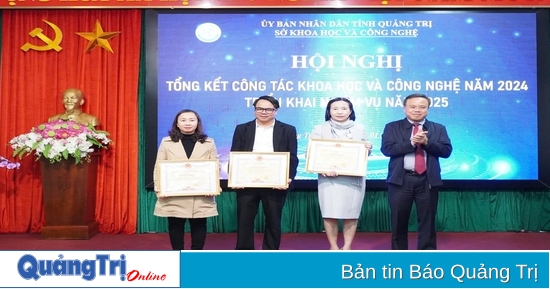
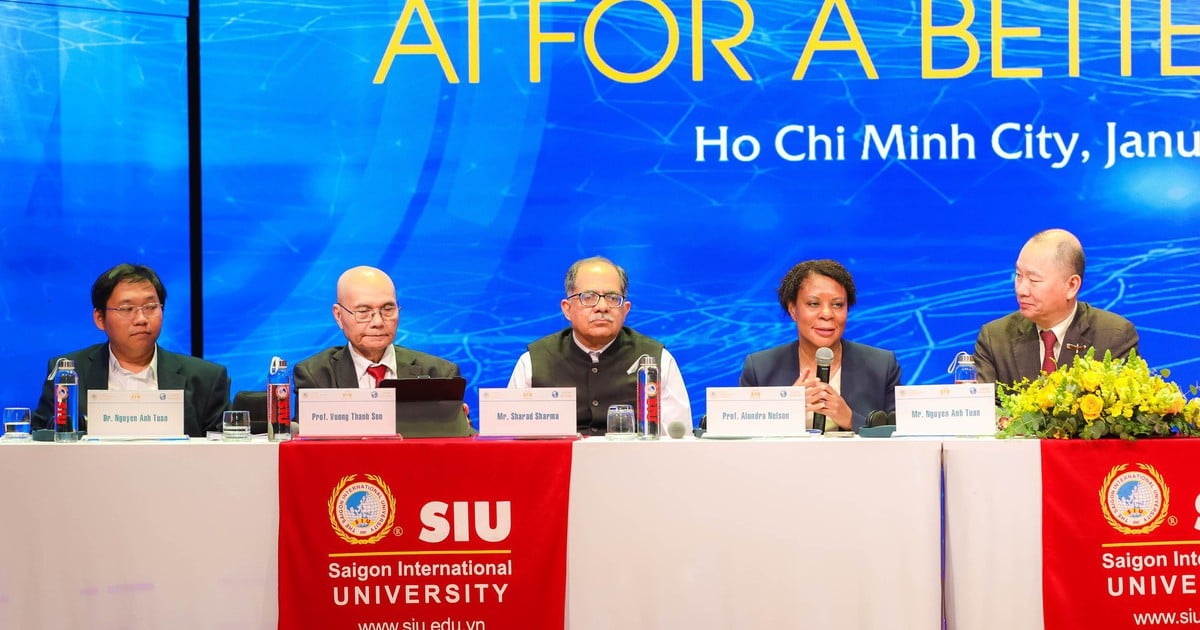

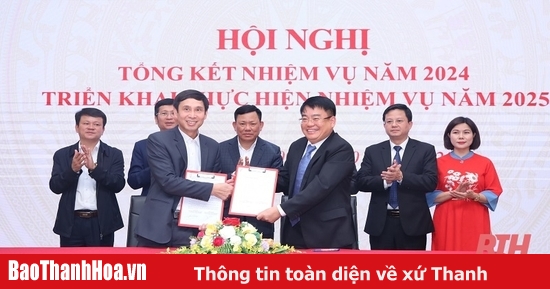
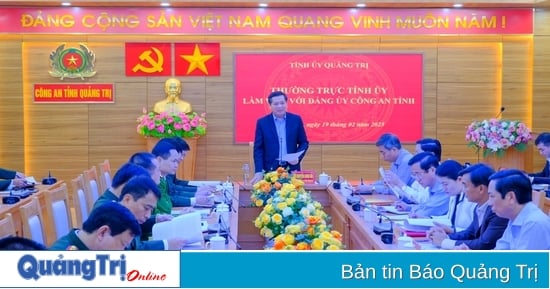
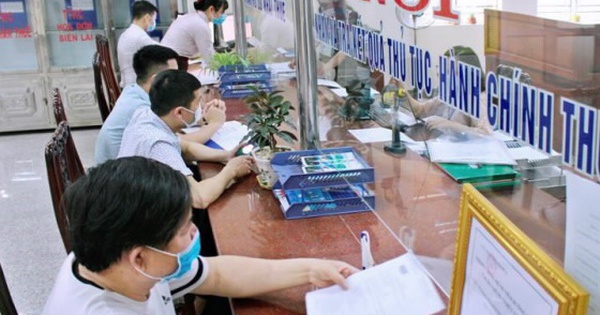






















![[Photo] Prime Minister Pham Minh Chinh chairs Government Conference with localities on economic growth](https://vstatic.vietnam.vn/vietnam/resource/IMAGE/2025/2/21/f34583484f2643a2a2b72168a0d64baa)





















































Comment (0)